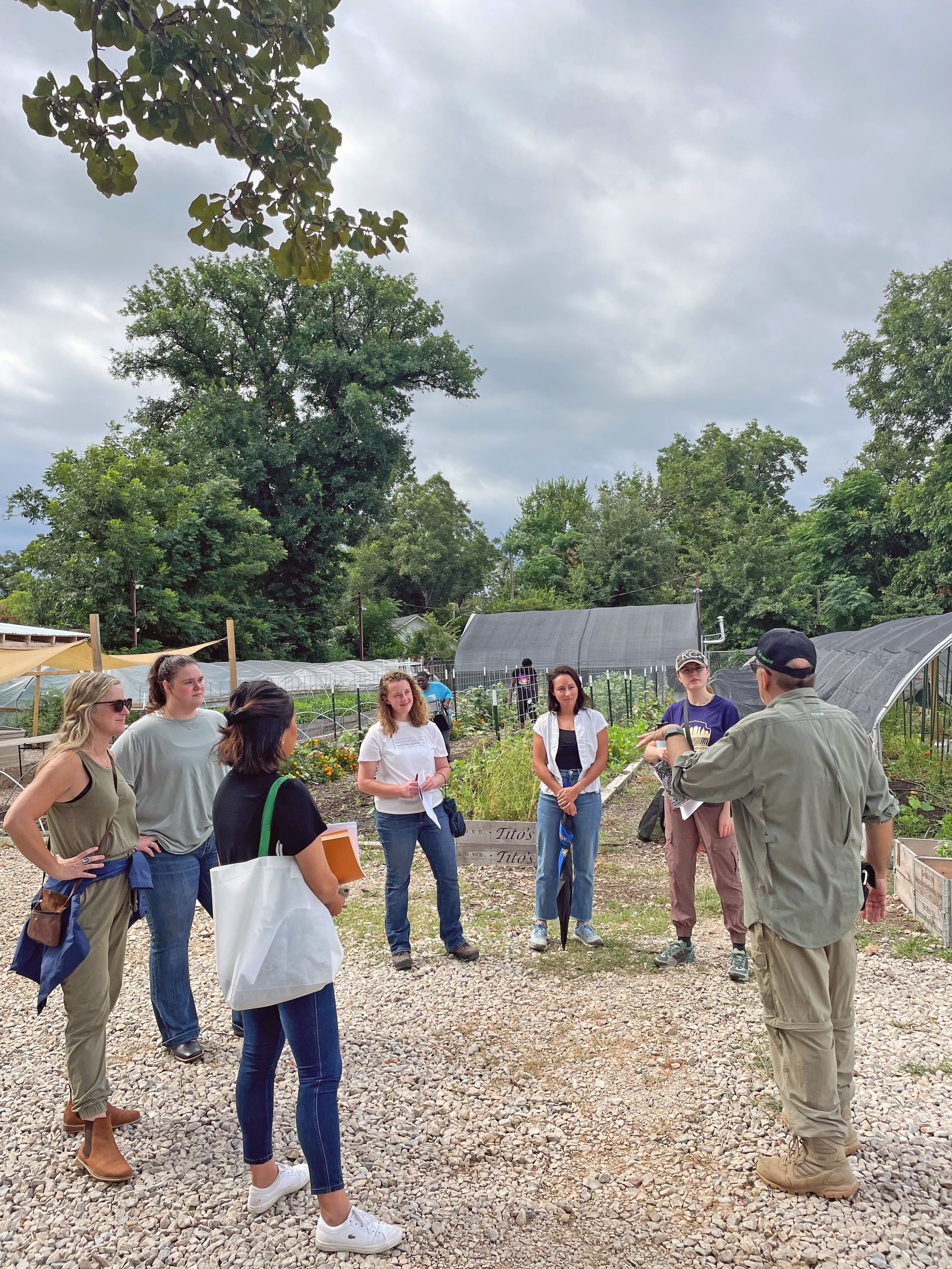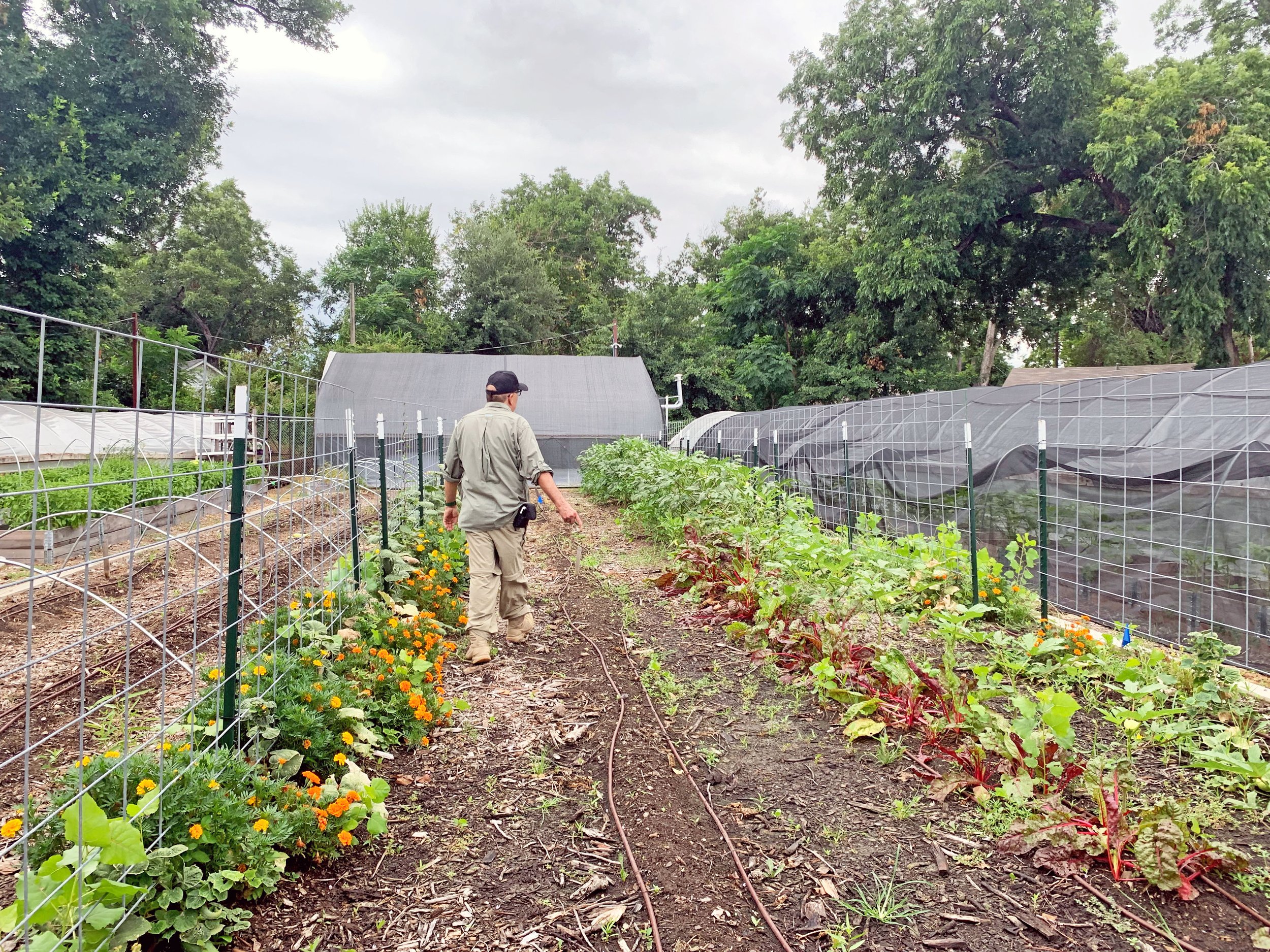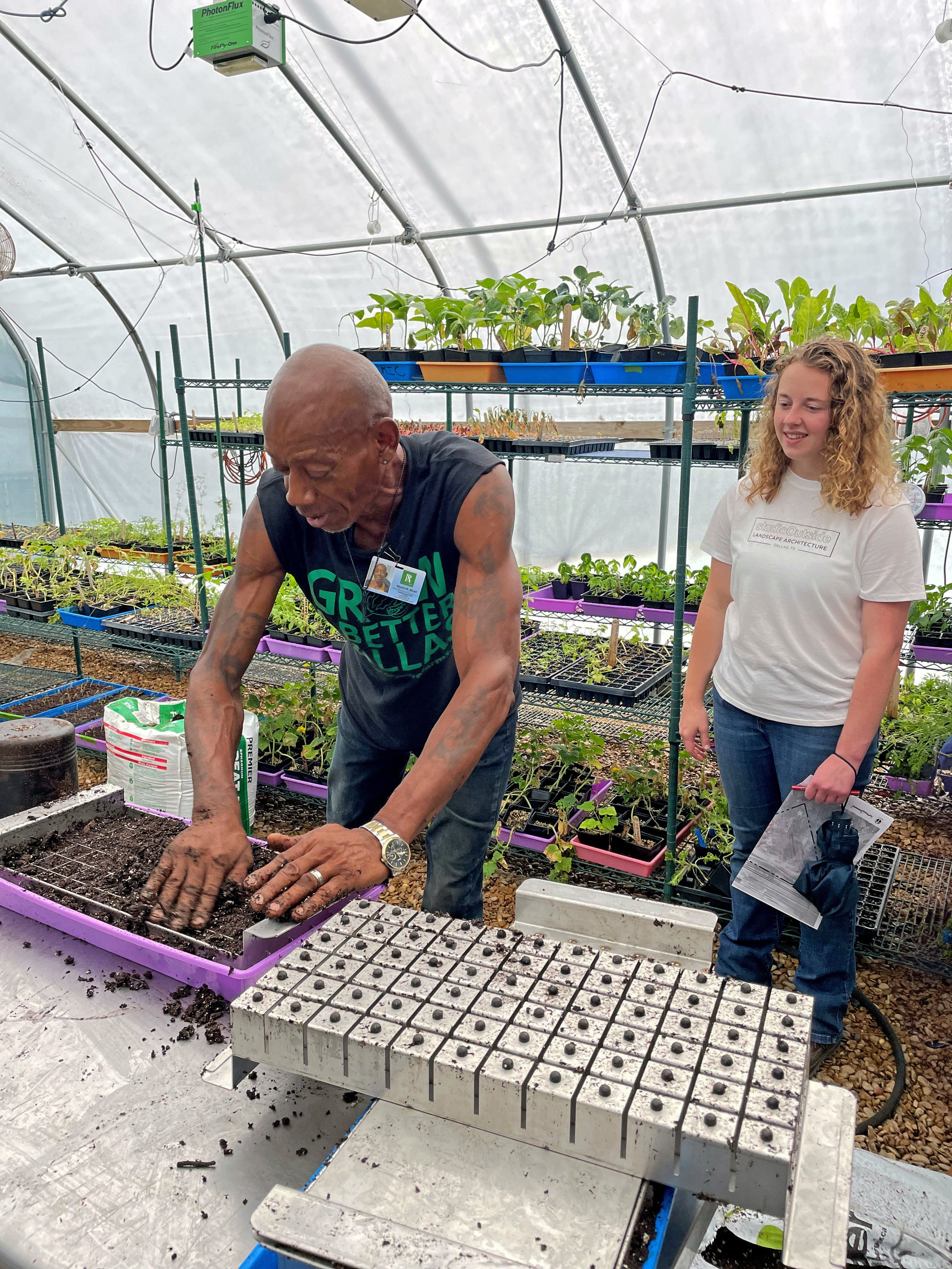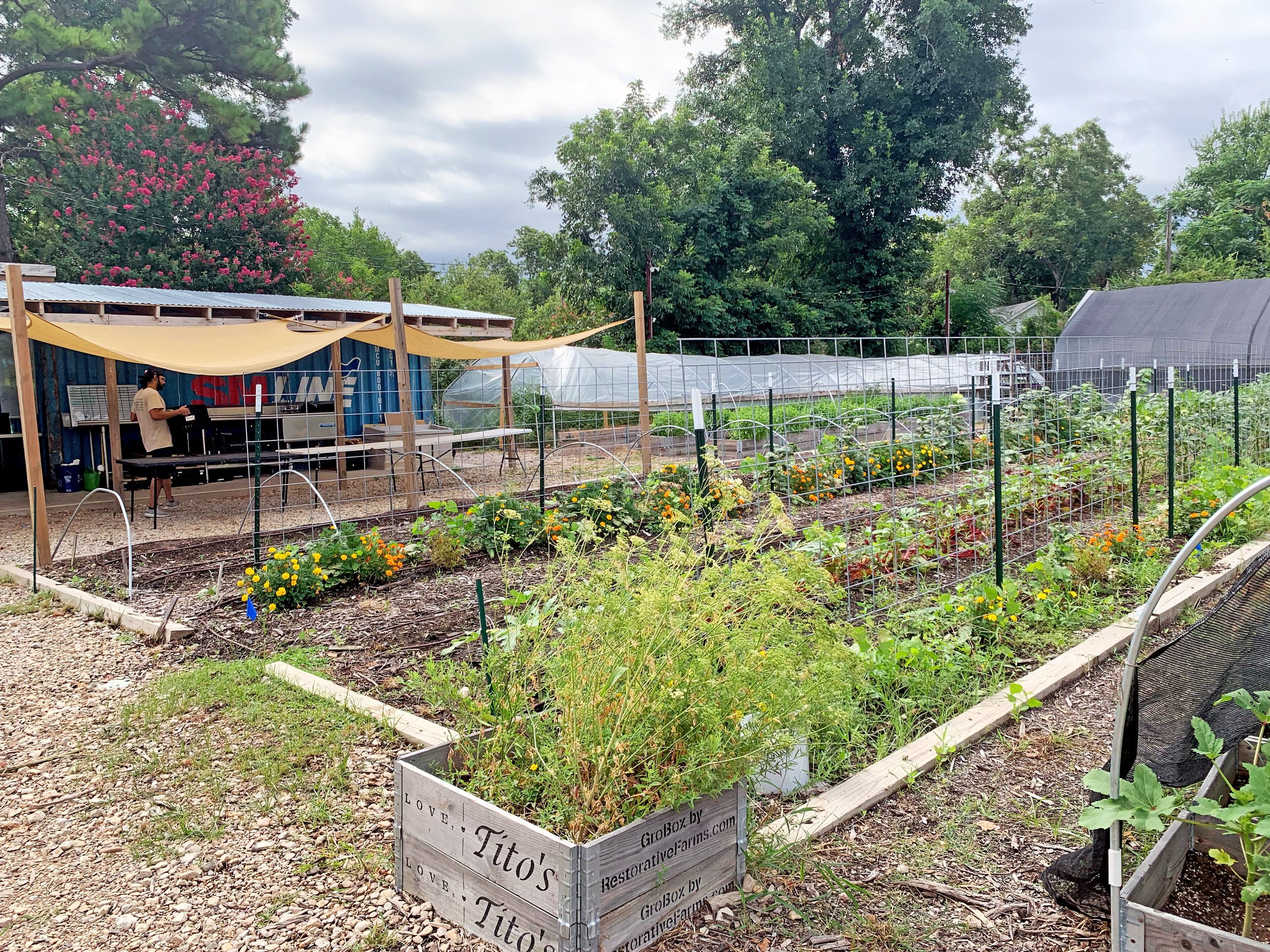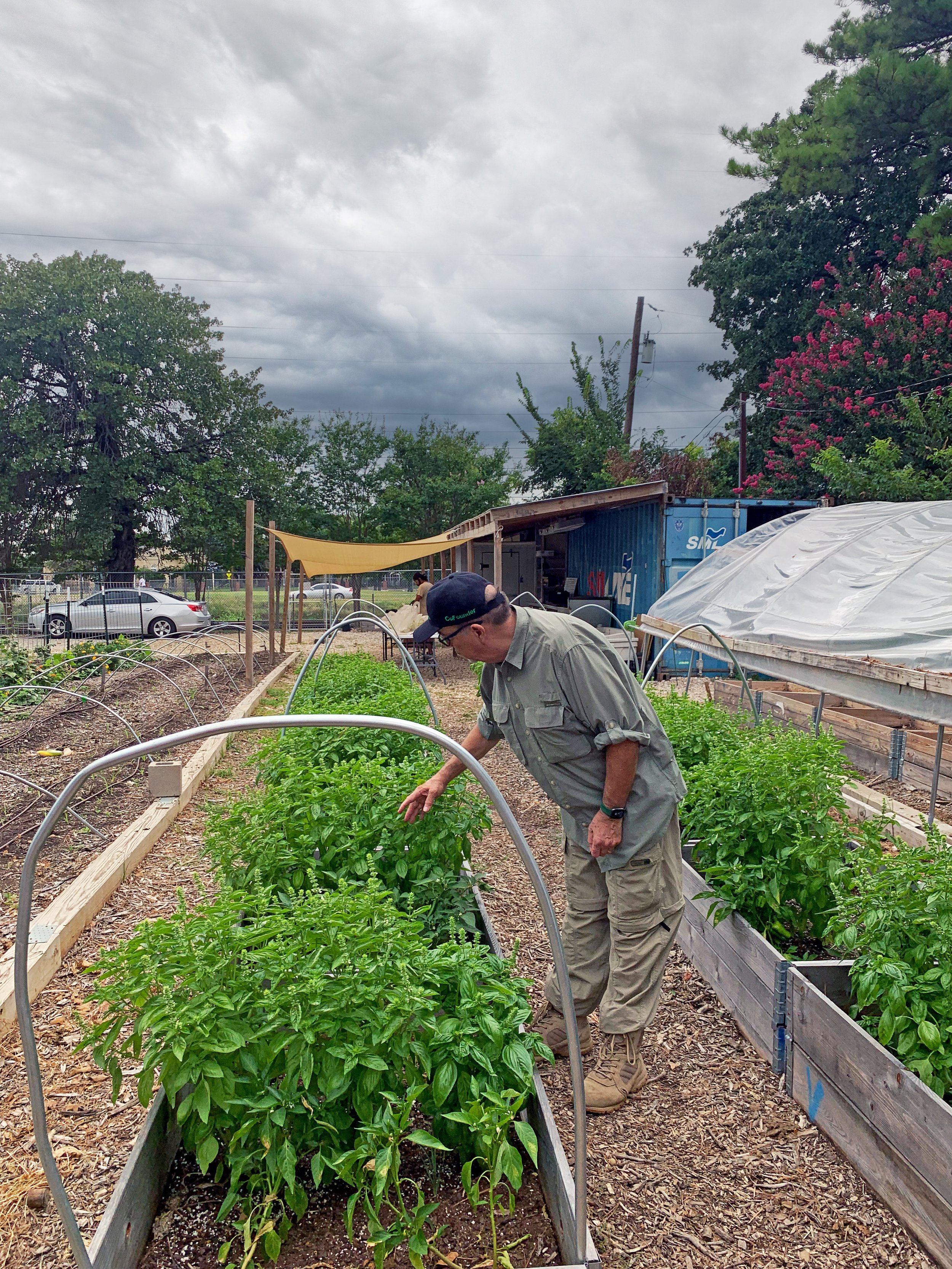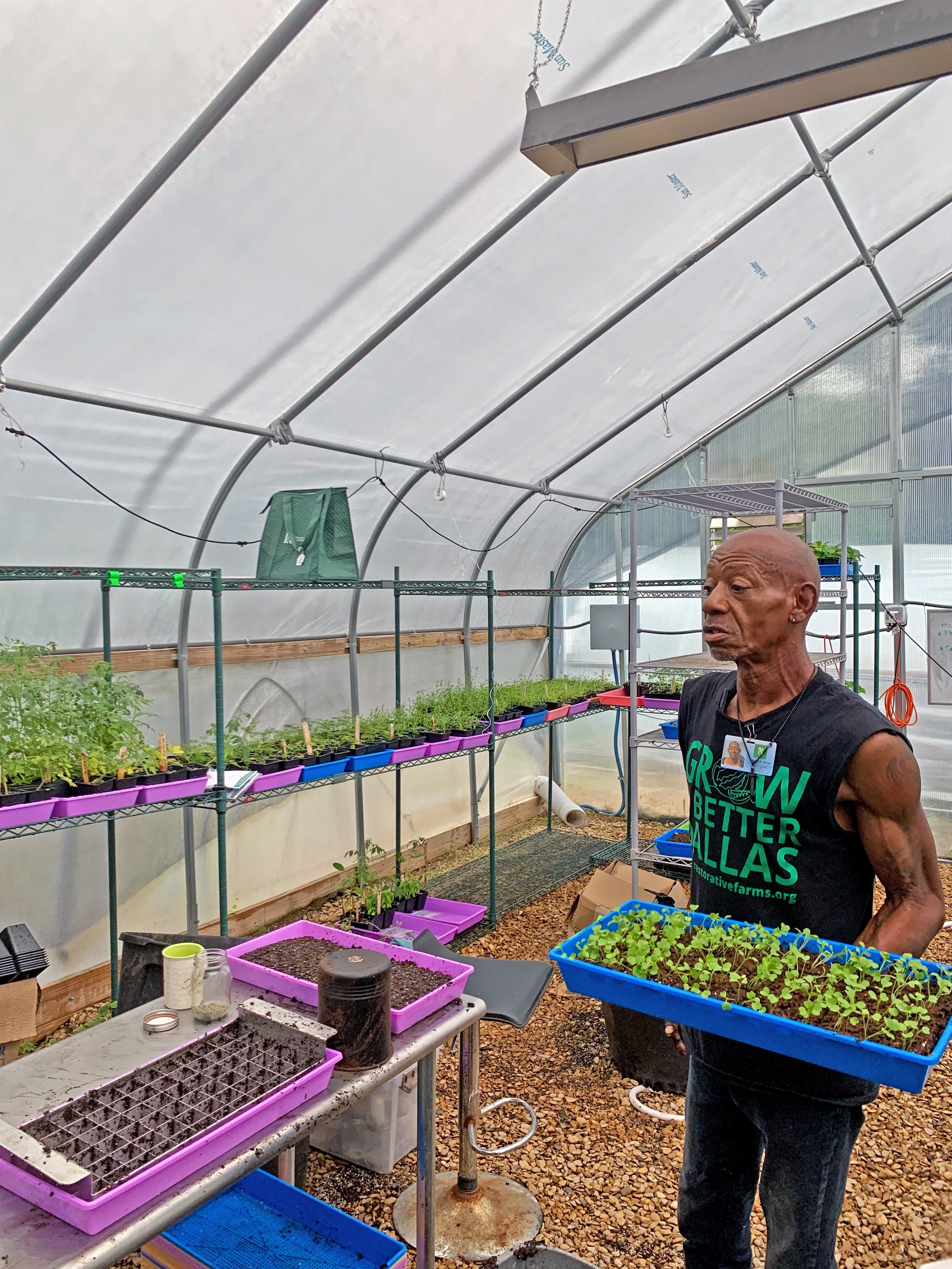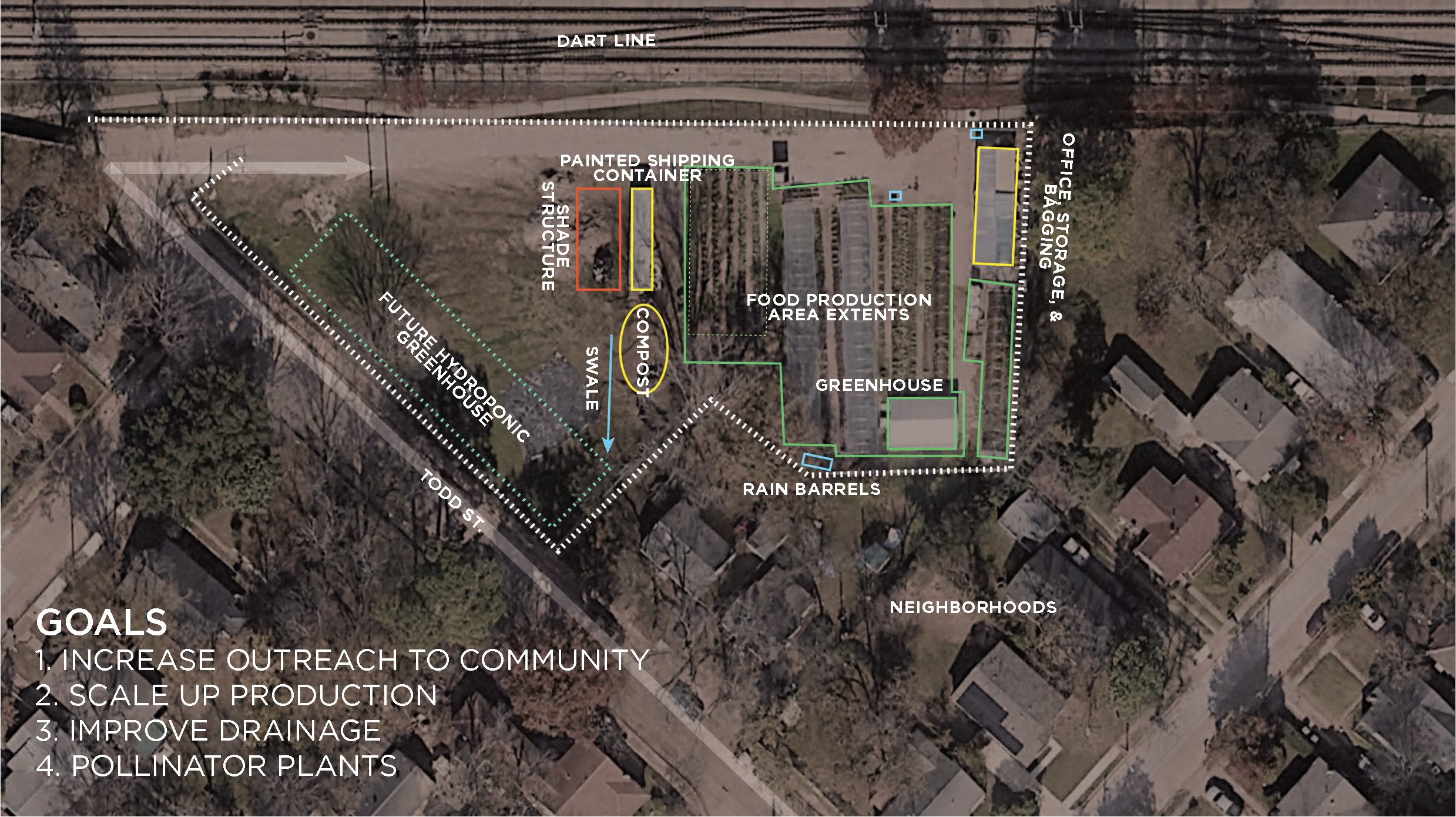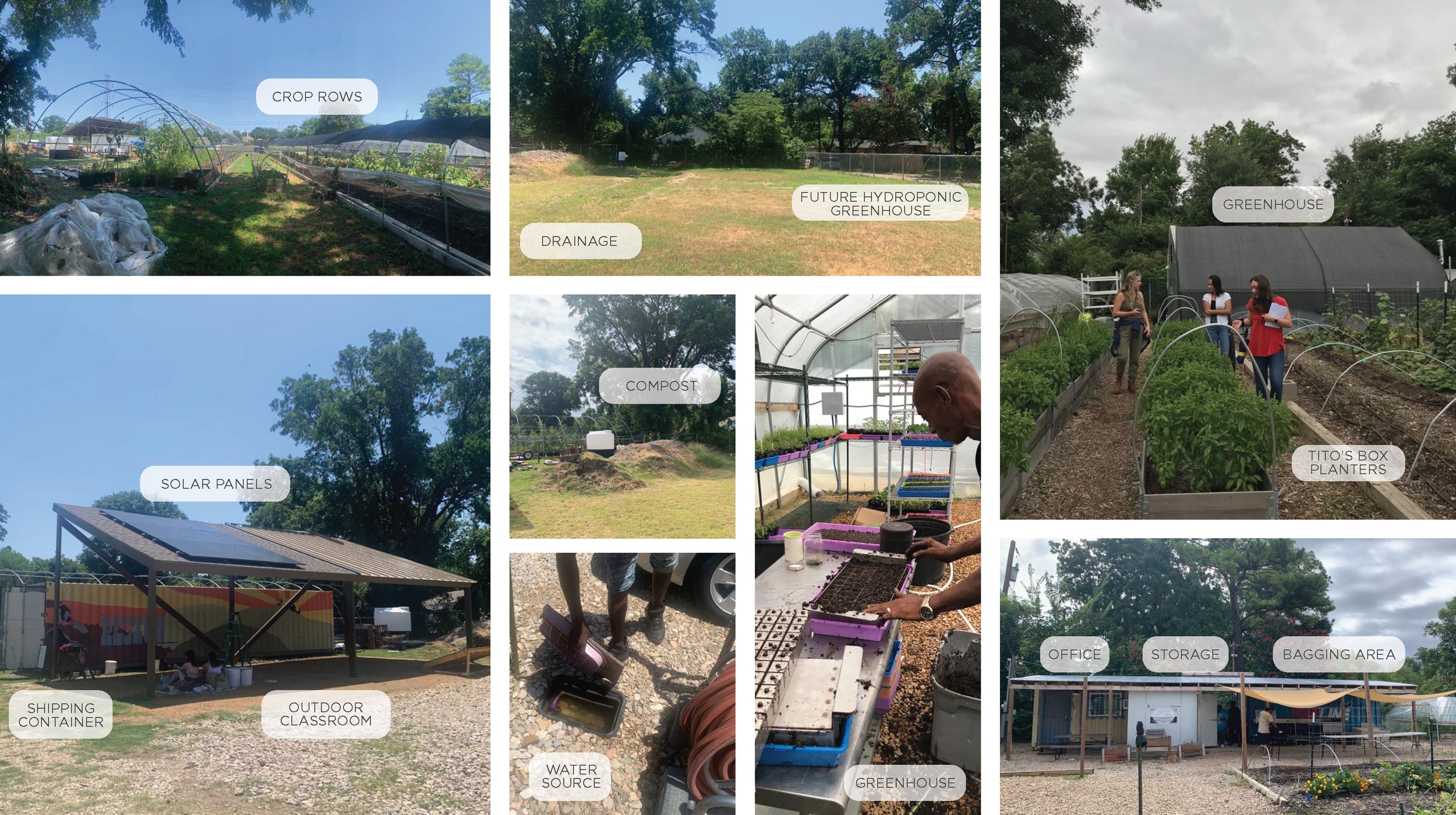Studio Outside’s annual Intern Week was a success this summer when our team of interns partnered with Dallas' non-profit Restorative Farms. Restorative Farms is an urban farm in South Dallas that provides relief in a significant food desert. They produce and sell food at affordable rates to the community and educate citizens on how to grow and prepare the crops. Our office challenged our interns, Rachael Herring (Purdue University), Emily Moore (Kansas State University), and Simin Liu (University of Virginia), to design a schematic design package that maximizes the production of a small-scale urban farm while incorporating programmable elements.
The Mission
Restorative Farms aims to transform a poverty-stricken, crime-ridden community into a vibrant, cohesive neighborhood. The organization's primary goals are to increase food security, community engagement, and economic prosperity through employment opportunities. The farm seeks to educate community members about the importance of stewarding the environment through agricultural practices to enhance food production. It offers community members a fresh start by providing employment opportunities and the ability to participate in a certified training program to learn about farm management.
The farm is a hub that raises awareness of agriculture and healthy eating by educating community members on how to grow and cook food. Since the community is in a food desert where accessibility to affordable and nutritious food is hard to come by, many members are unfamiliar with preparing fresh vegetables such as okra. Restorative Farms provides recipes and instructions for community members to be self-sustaining.
One of the best examples of helping the community become confident in farm management, and gardening is teaching community members how to assemble wellness boxes. These wooden boxes serve as garden beds. The farm teaches members how to put the soil in, manage plants, and which crops grow best according to the season and climate conditions.
Their local agrisystems, holistic approach, and self-sustaining strategy bolster the local economy. The community can maintain profitability and economic viability by selling produce at a discounted rate and distributing it from a central hub. Having an urban farm in the heart of South Dallas brings education and employment opportunities that catalyze change and improve the quality of life.
Kick Off
Intern Week launched with a site visit to Restorative Farms, where Doric Earle, Co-Founder and Director of Operations, explained the existing structures and layout. Throughout the tour, Earle discussed the daily challenges Restorative Farms faces and the programs they would like to implement to increase their productivity and profitability. Some design features discussed included incorporating a hydroponic greenhouse, free-standing bathroom facilities, community-covered spaces, parking, flood and drainage solutions, and increased security measures.
The existing site conditions include 8,505 square feet (SF) dedicated to food production, 800 SF of community gathering spaces, 1,000 SF of food production support areas, and 500 SF of greenhouse space. The interns were tasked with designing a layout that increases community outreach, expands production, optimizes drainage, and incorporates pollinator plants.
The Design Process
One of the most critical factors in the design process was working with existing structures and exploring the possibility of moving them. It is crucial to balance the functionality and beauty of the site. For instance, a chain link fence secures the DART line along the farm's side. To enhance the farm's security, privacy, and aesthetic, the interns proposed covering the wall with wildflowers and vines that screen off the rail line. The natural screen would deter break-ins while creating a more intimate setting for the farm.
The interns took over a conference room for three days, where they brainstormed, drew out, and designed their site plan. During the early stages of the design process, the interns realized they needed more information to continue. They had to return to the site to attain critical data, such as the placement of water and measurements.
Throughout the week, the interns held desk critiques and reviews where designers at the Studio Outside office could drop in and discuss the proposed site plan. These sessions allowed the interns to collaborate with others and hash out various design elements.
The Final Product
The Restorative Farms team gathered at the Studio Outside office, eager to discover the reimaging of the current site plan. After three days of brainstorming and finalizing details, the interns were ready to disclose their design concepts. The interns utilized Emily Henry's advice in their public speaking training session to impress the Restorative Farms team.
The interns proposed a site plan incorporating a hydroponic greenhouse, fruit, and nut tree orchard, bee farm, drop-off and parking spaces, pavilion and courtyard, picnic and grill area, rain garden, crop rows, and the existing structures. With these new features, the food production and support areas doubled, the community area quadrupled, and the greenhouse space grew to 5.5 times the original size.
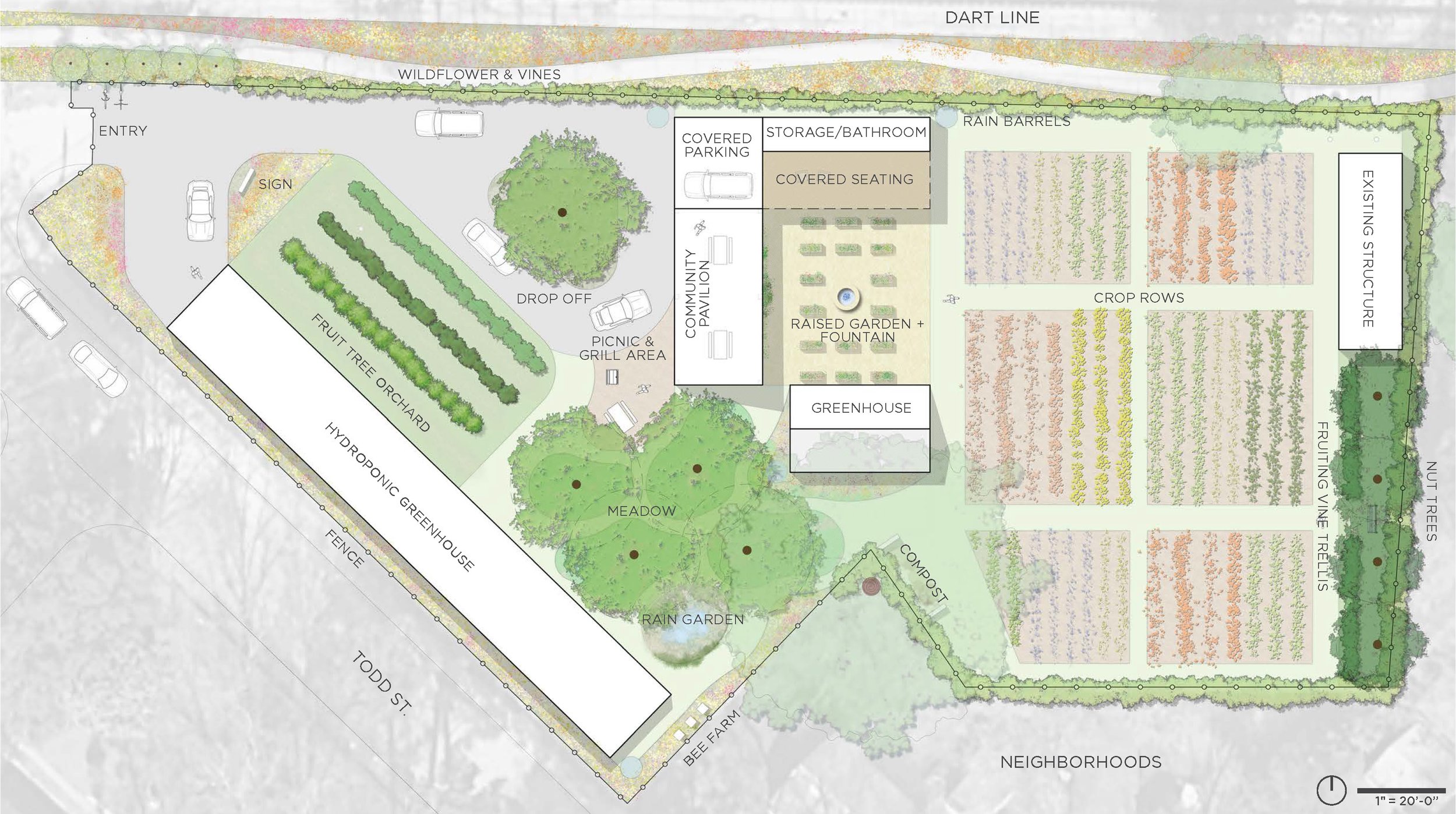
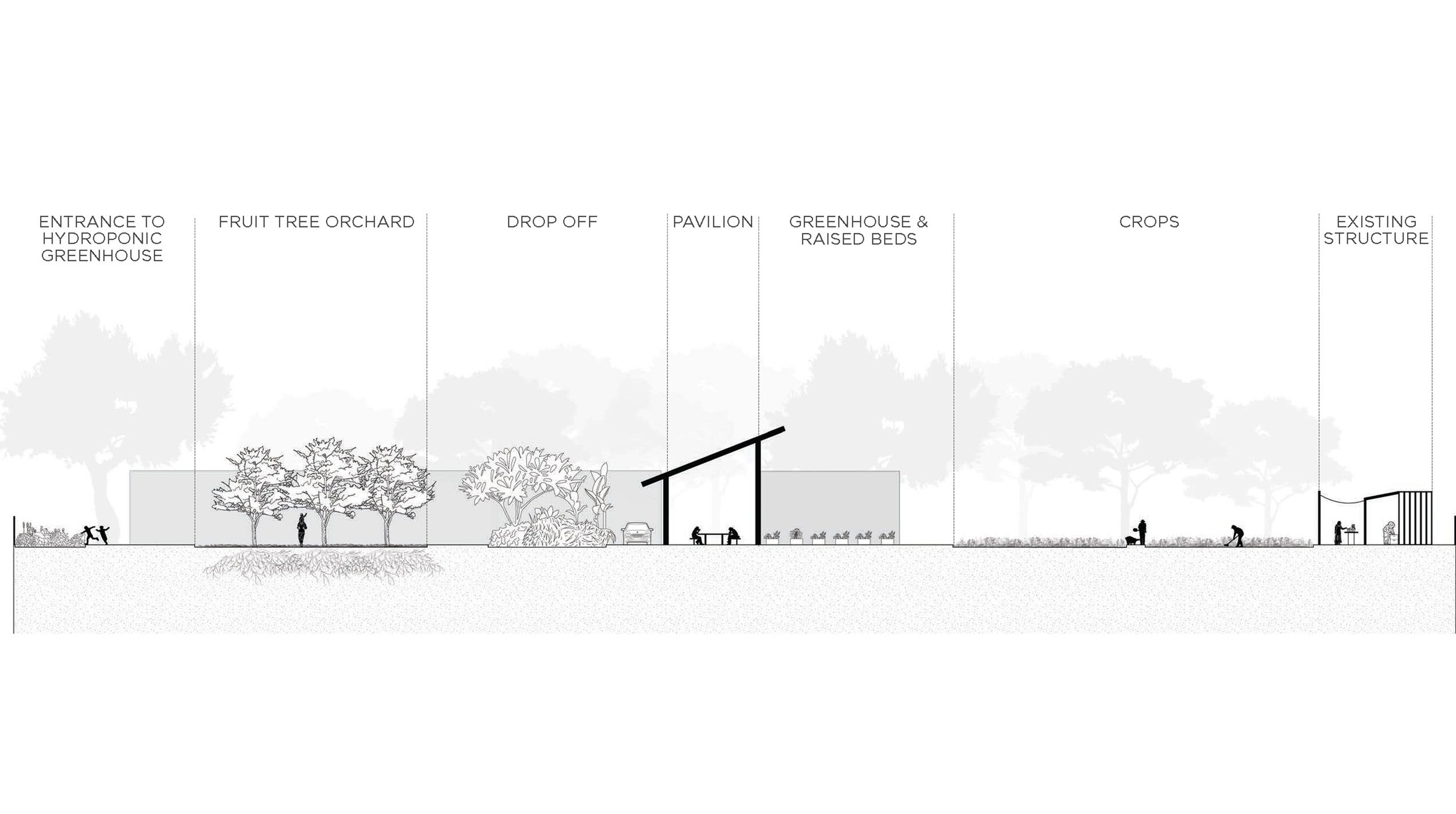
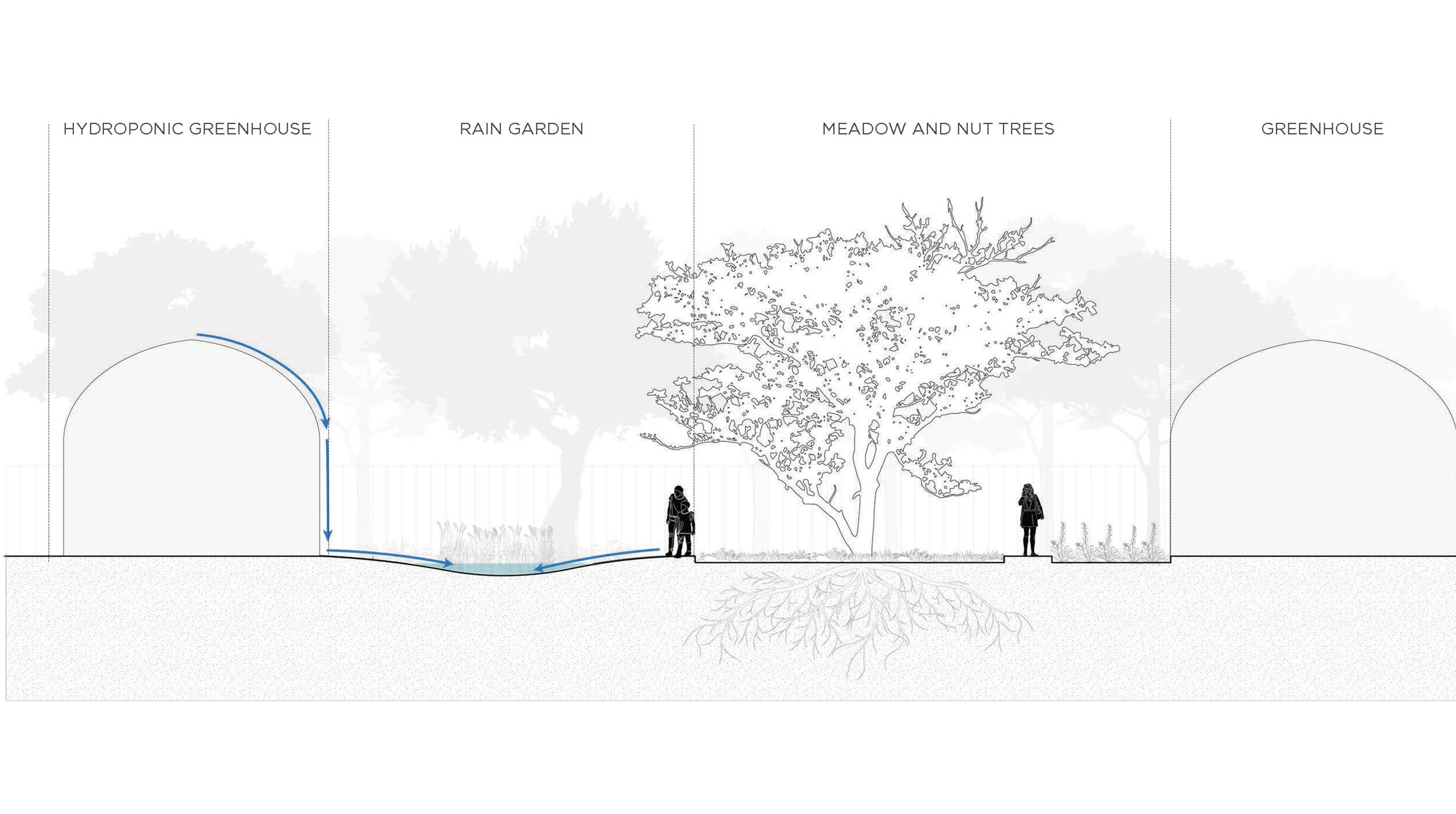
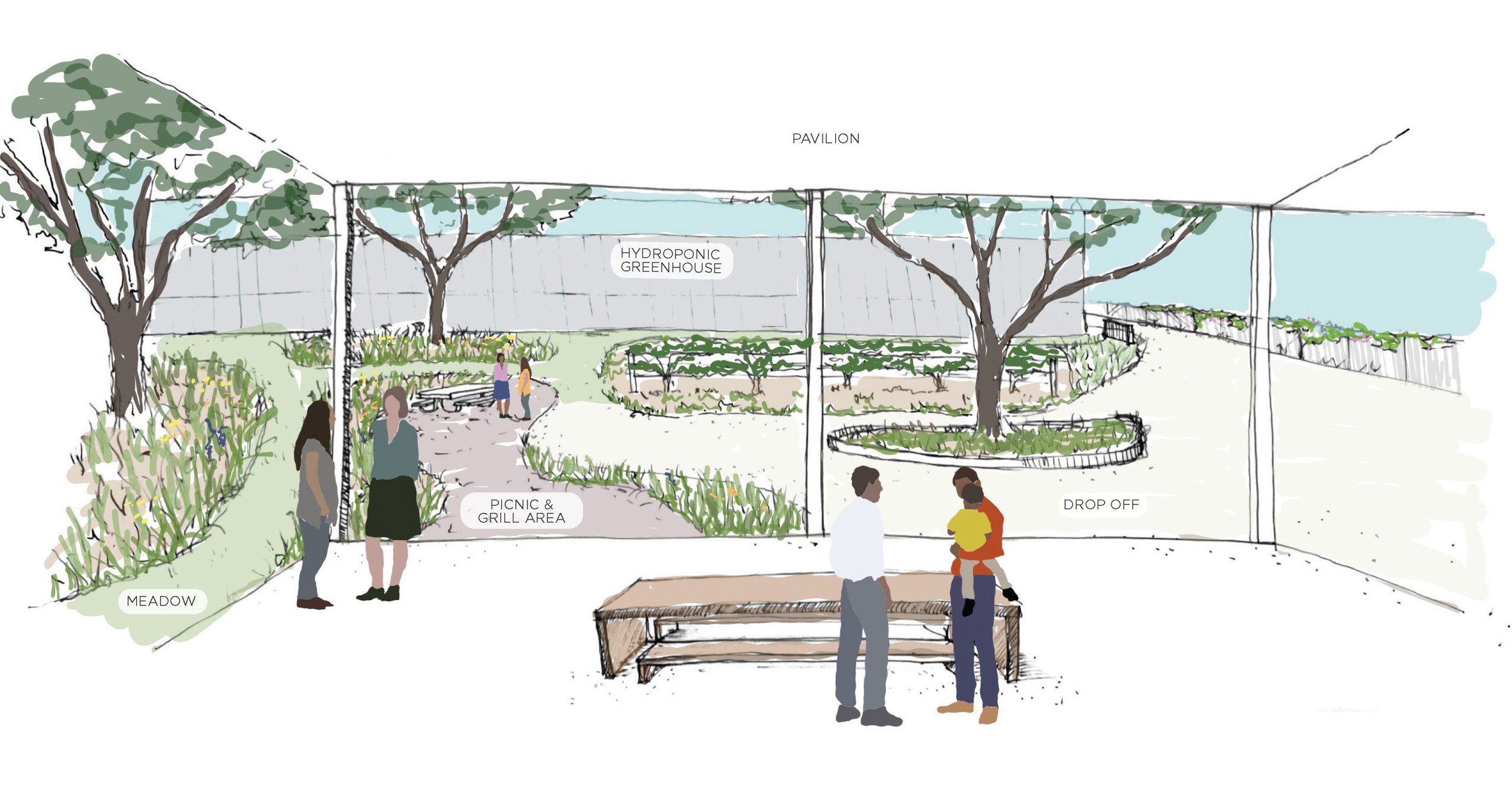
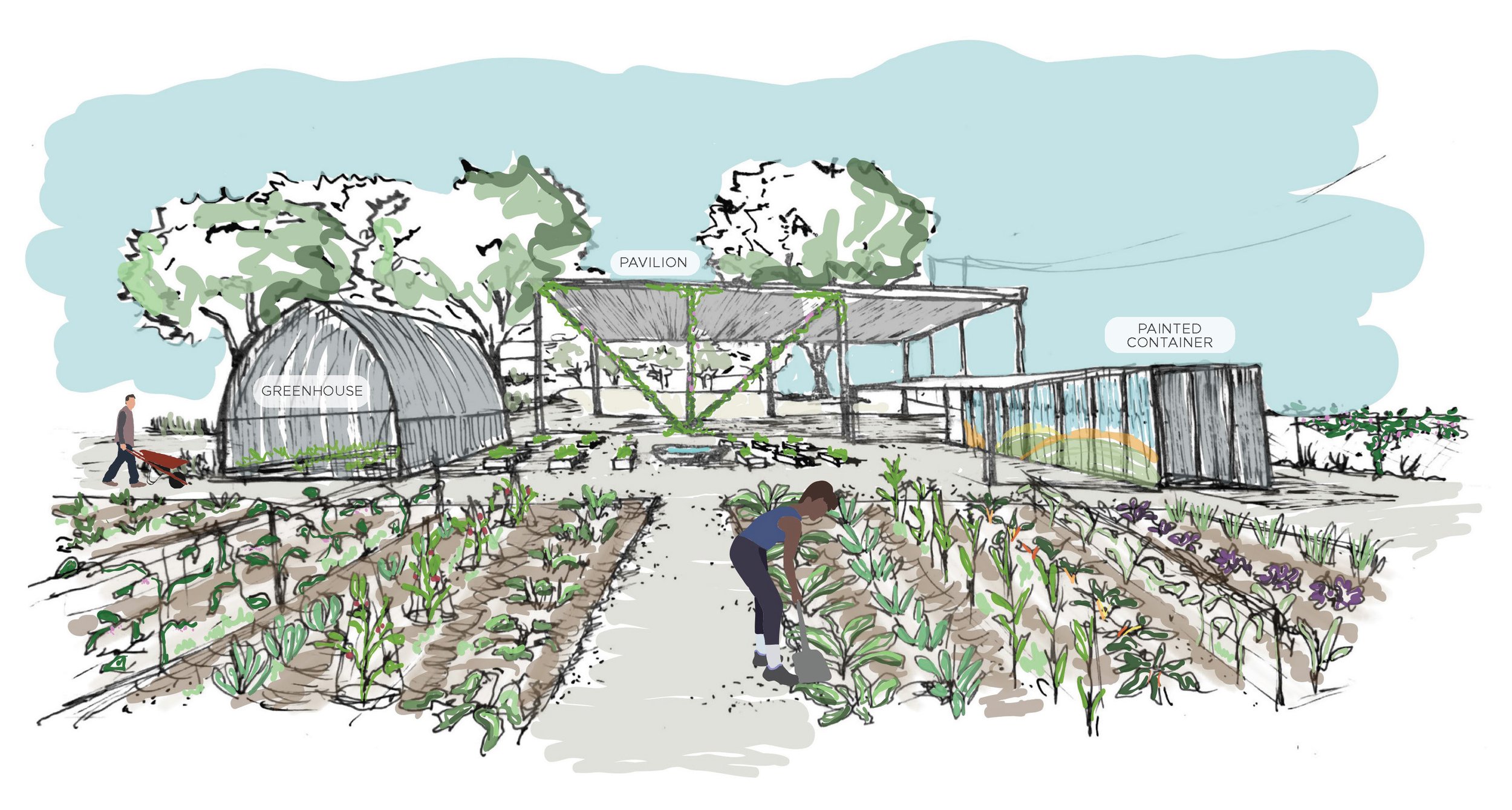
The team was ecstatic to see their farm transformed into a welcoming space that maximized production while fostering community involvement and identity.
Takeaways
Intern week allows interns to take charge of their projects and familiarize themselves with client relationships and their needs. This hands-off approach gave interns the flexibility and independence to think outside the box and showcase their skills.
“I was astonished at how much we accomplished in such a short time. We wanted to create a functional farm that served as a beautiful, welcoming space for the community to gather. Our design helped the client to see some ideas they had never thought of before. It was incredible to present the client with a site plan that could help the farm grow and increase productivity in a week.” – Emily Moore
“Through this process, I could better understand my thinking pattern. My background is in business and hospitality management, so this was a new experience. It showed me that I could do more than I thought possible.” – Simin Liu
“This project challenged me to incorporate connectivity and create a farm that didn't solely focus on production but strived to bring the community into the space. The design process itself taught me how to communicate with the team to improve solutions and to enjoy the time spent with my fellow interns.” – Rachael Herring



